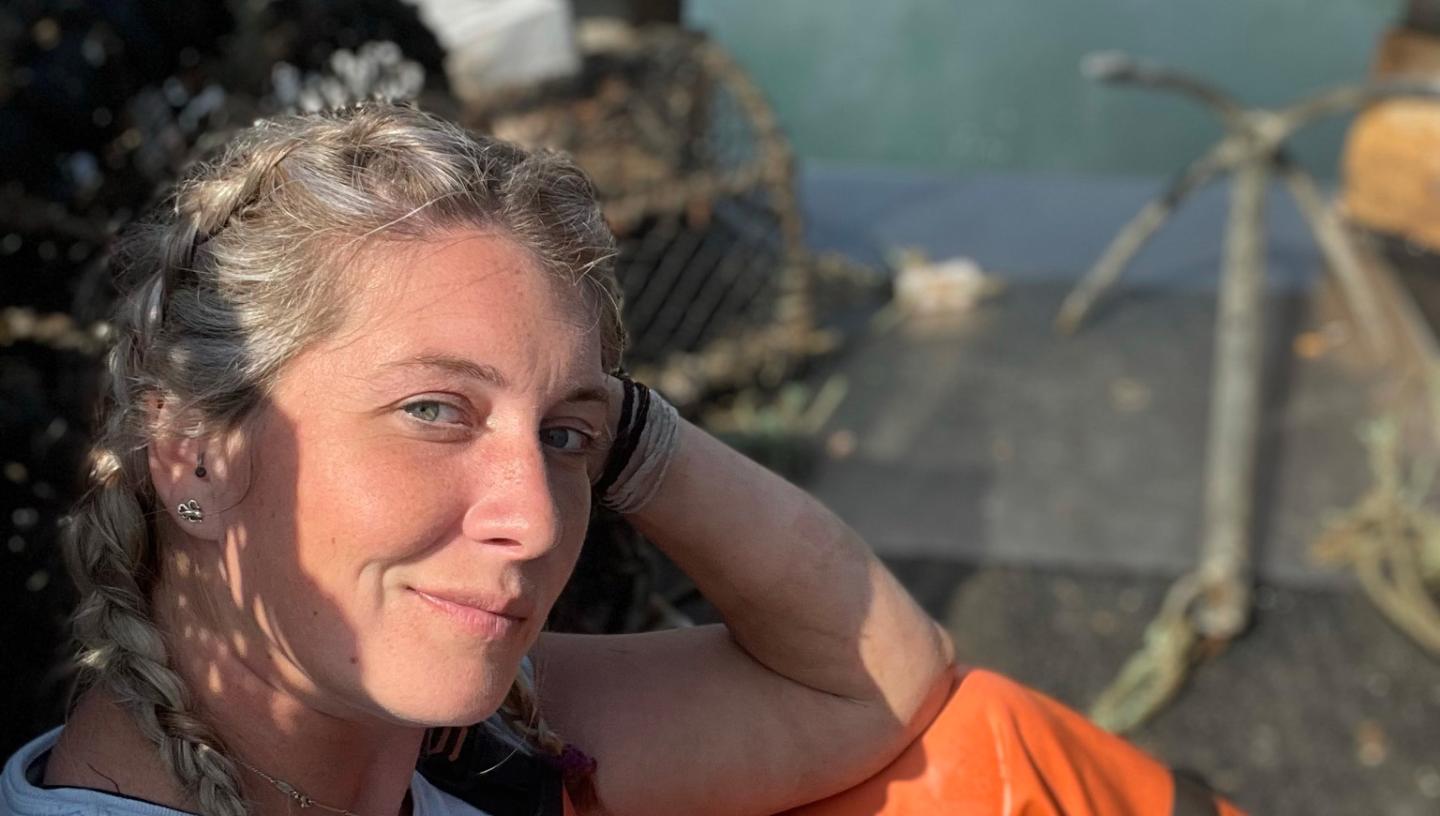
When Ashley Mullenger signed up to take part in a fishing trip off the coast of Norfolk in 2012, she never imagined it would lead to a radical lifestyle change.
Buoyed by the experience of being out at sea, she returned the following week. Over the next few years, she spent her spare time on the fishing boat, cramming in time at sea in between the demands of her office job in logistics management.
The turning point came in 2018 when Nigel, the boat’s skipper, asked if she would like to work with him. Ashley realised she had to make a difficult decision: continue with her stable but unfulfilling full-time job, or follow her passion for seafaring. Harnessing the attitude, "Nothing ventured, nothing gained", Ashley threw herself into fishing.
Since then, she has never looked back. Her commitment to raising awareness of fishing and encouraging more women into the industry through her Instagram account @thefemalefisherman has seen her amass more than 8,000 followers.
In 2022, Ashley won ‘Under 10-metre Fisherman of the Year’ at the Fishing News Awards – the first time the accolade has ever been awarded to a woman.
From 1am starts to emotional connections with boats, Ashley gives us an insight into the demanding yet invigorating life of a female fisherman.
Where and what do you fish?
We work from Wells-next-the-Sea in North Norfolk, which is primarily a shellfish port. On our wooden boat, Fair Lass, we whelk – whelks are our bread and butter – and on our smaller fibreglass boat, Saoirse, we catch whelk, crab and lobster.
As Wells-next-the-Sea is a tidal harbour, the time we start revolves around the tide. We fish either in the harbour or off shore, depending on the time of year or how long we’ve been fishing in a particular area. In the summer, we’ll take advantage of the better weather and we’ll fish 25-30 miles out at sea.
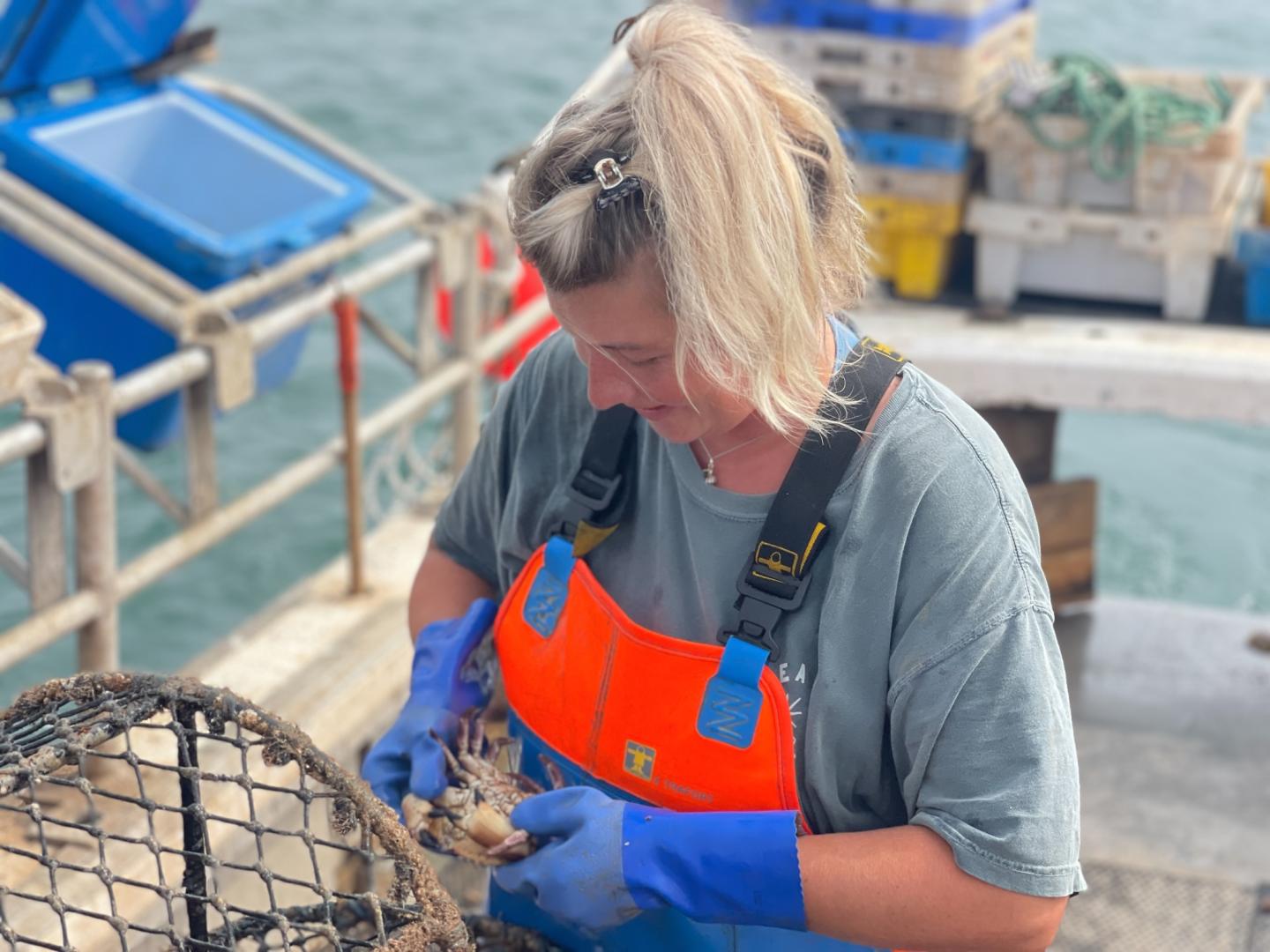
Once you’re ashore, the work doesn’t stop: you have to unload the catch and do God knows how many forms and paperwork.
Our crabs and lobsters will stay locally, going to local restaurants and stalls on the quayside. Once our whelks have been processed, they will be sent abroad. 95 per cent of the UK’s whelk catch is exported, particularly to Asia and South Korea.
I would love to sell whelks locally in the UK, but there isn’t a market. There used to be, but it seems we’ve really fallen out of love with them.
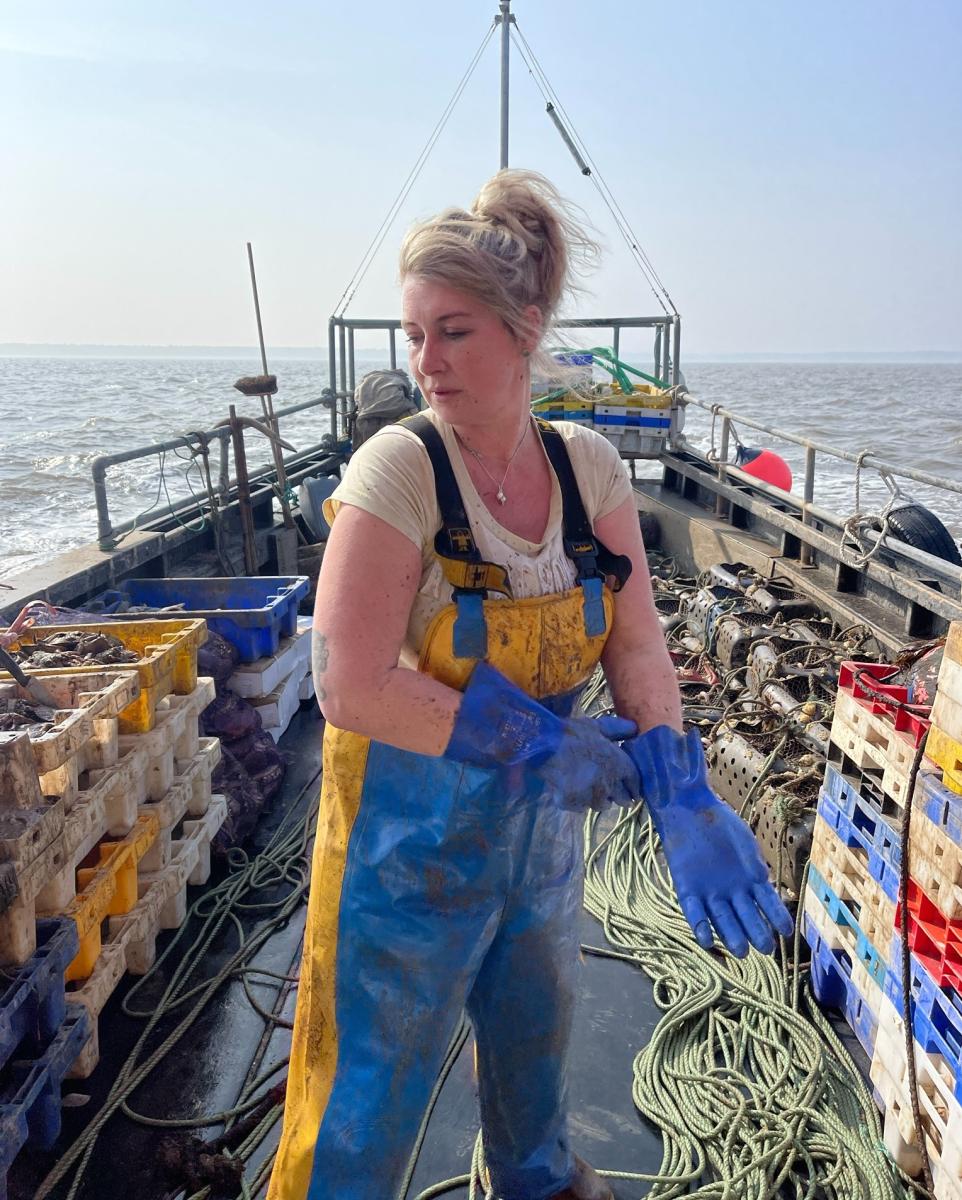
What is it like at sea?
Being a fisherman is a lifestyle choice, not just a job: your day can be anything from 10 to 16 hours long. The situations can be quick and difficult, so you need to make sure you take the right precautions to stay safe and counteract whatever’s going on in the environment around you.
I like the unpredictability of it. The job is challenging, but it’s the type of stress where I’m learning something.
We fish for as much of the year as possible, from 36-degree summer days to the cold winter months.
We wear oil skins, which are traditional yellow dungarees and wellies. I don’t know what it is about oil skins, but they make you feel, “I’m made for this.”
In the winter, I wear as many layers as possible: two pairs of trousers, two pairs of socks, long sleeve thermal, a T-shirt, a jumper, an oilskin top and gloves.
The sea is open 24 hours a day, seven days a week, so you do have to fish at ungodly hours, like 12am and 1am. It helps if I put on an old school rock playlist, which really blows the cobwebs out.
We have various playlists for specific reasons. If it’s a really hot summer’s day, I’ll put on a reggae playlist (I love the song ‘Reggae Shark’). Nigel has a theory that lobsters like Cardi B, so if we’re going crabbing, we’ll play her songs.
I love it when you’re offshore on a warm day, everything’s still and all you can see is the sea and windfarms. I enjoy the isolation: your phone signal’s gone, no one can get in touch and it’s just you, the skipper, the boat and your surroundings.
We live and share so much on our phones – people are contactable 24/7 – and I like the fact that sometimes I’m not.
With so many hours spent on board, do you develop a connection to your boats?
It’s an emotional connection – I’ll probably start crying in a minute. Boats are not just a tool for the job: they have emotions and souls.
I have a connection with both of our boats, but especially the wooden one, Fair Lass. She’s a living thing and completely unique – at one point she was an idea in someone’s head. She had a life before us, and it’s her job to protect us, and our responsibility to keep her safe.
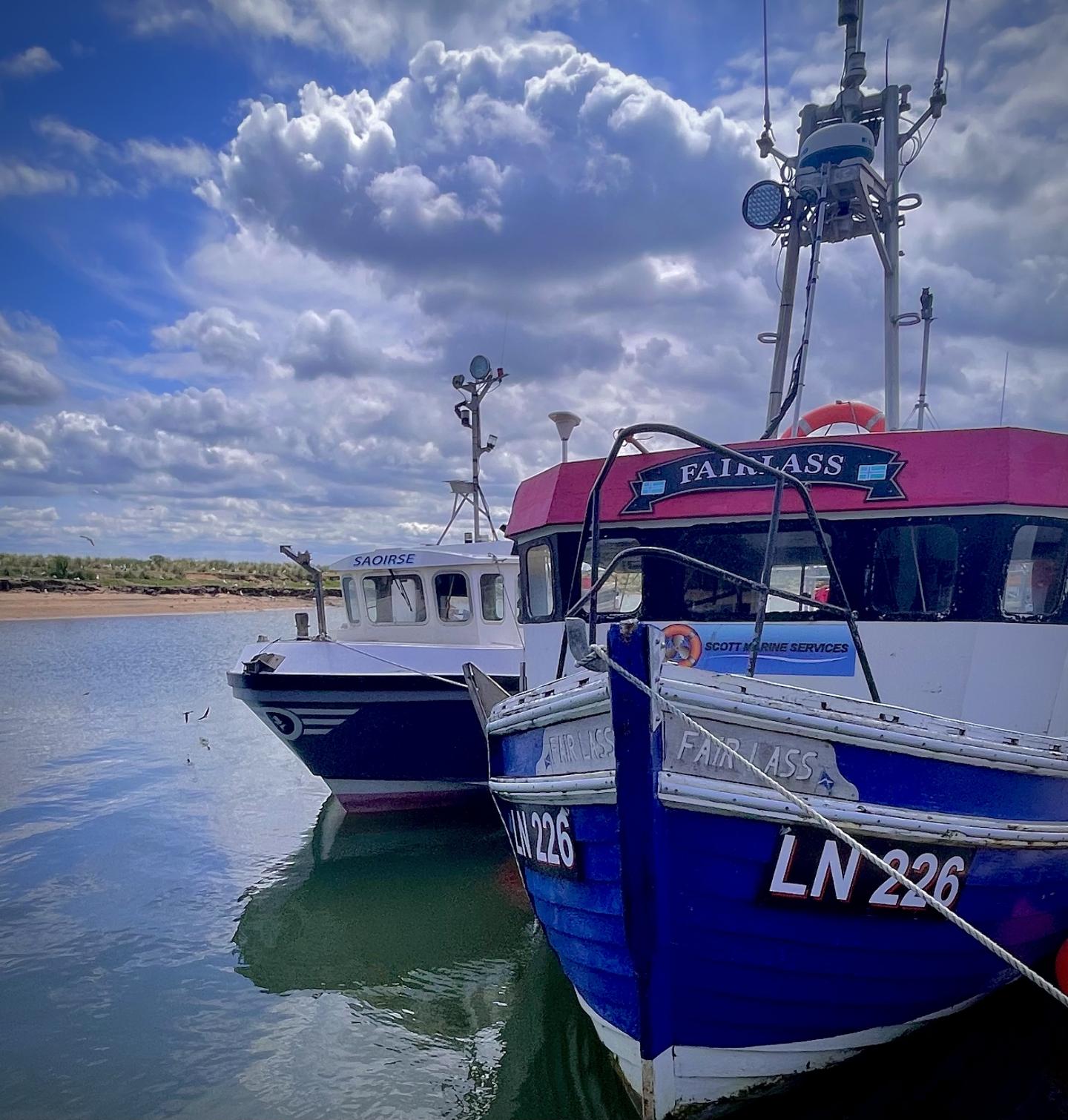
Boats have a hard life – we use them a lot – and they play up and need checking all the bloody time. They’re just like a person: they play up, we argue and I tell them off.
Issues such as sustainable fishing continue to dominate headlines. How do you manage your impact on the environment?
We have strict regulations regarding catch sizes. When we catch whelks, we shake them over a riddle – a metal table with bars spaced 24mm apart. Anything that’s too small or legally undersized will fall straight through the gaps and will be returned to the sea.
For crabs and lobsters and other fish such as mackerel and cod, we have minimum landing sizes – the smallest fish measurement at which we can sell a fish – that we must adhere to.
You wouldn’t want to take anything too small because of your conscience; you’re also not going to get a good yield. If we’re fishing a particular area and we’re not seeing as productive catches, we know we need to leave it alone.
For the most part, fishermen also care about marine litter: we don’t want to see rubbish going in the sea. The rubbish we do see include things like plastic bottles and inflatables, which we will retrieve.
We’re static pot fishers, which means we use baited pots to catch our whelks and crabs. Whelk pots cost just under £10 each and there’s around 50 pots in a string, so we don’t want to be losing any. If we do lose gear, we’ll go back and find it. We have to.
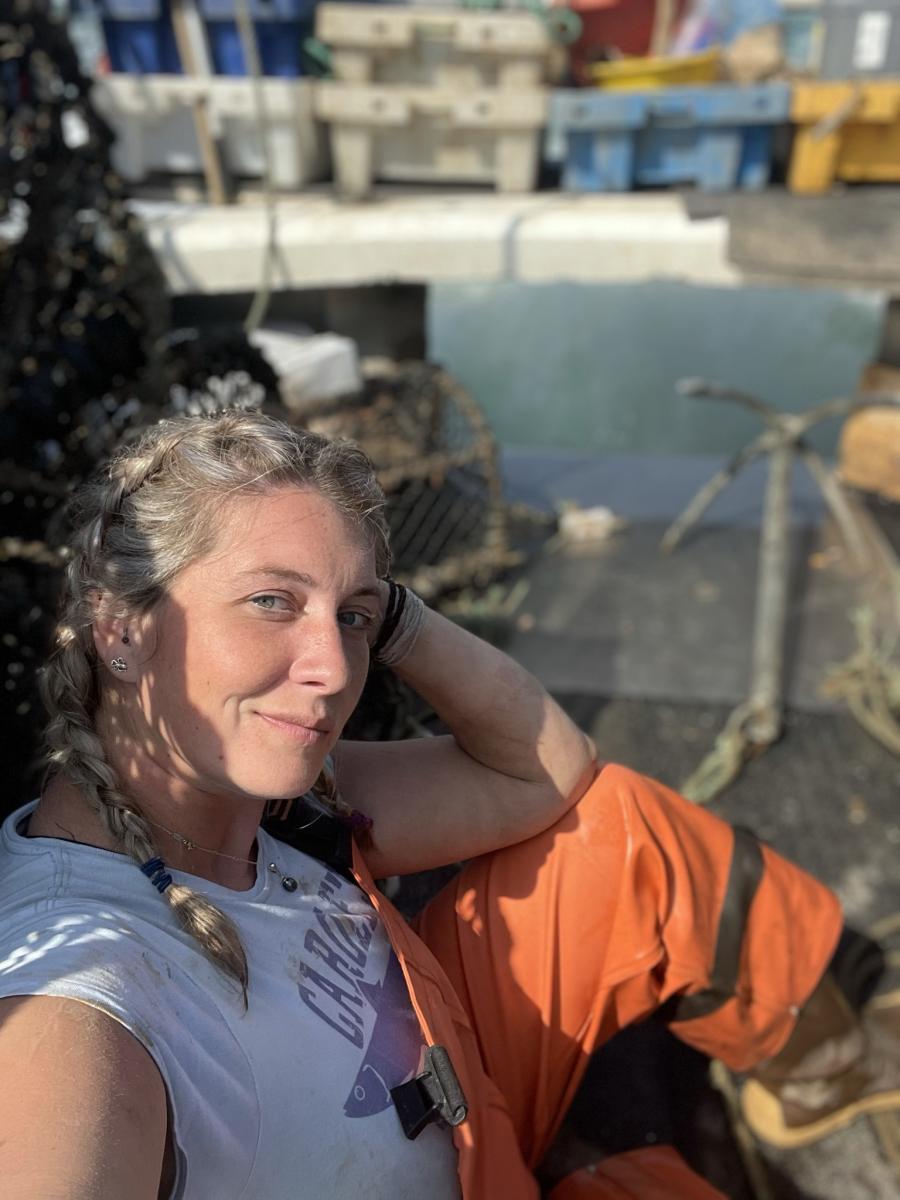
Did you feel hesitant about entering a male-dominated profession?
I wasn’t put off entering the industry because it was predominantly male. The thing that was holding me back was this preconceived idea that I wouldn’t be physically strong enough for the job, and I wouldn’t want a man to risk his safety for me.
Looking back, I now realise that a good skipper will know what your limits are – it’s all about training and awareness. You’re never going to put yourself in a position of danger.
The majority of people in this industry that I’ve encountered are almost proud to have a woman working as a fisherman.
Globally, I get messages and support from people saying, "You’re doing an amazing job, it’s so refreshing to see this". It boosts me up a little bit more and makes me feel that I’m accepted, and my contributions are recognised.
However, getting into this industry is difficult, especially if you don’t live in a coastal setting. Before you even set foot on a commercial fishing boat, you need to have taken a Sea Survival course, which can be expensive.
We need to normalise seeing women in this industry, which is why I share so much on social media, so people realise that women can be fishermen, and they can be as good as men.
I’m trying to raise awareness of empowering women – not just to be a fisherman – but to be anything you want to be. The same goes for men. If men want to do something that’s predominantly a women’s job, go and do it. You’ve got nothing to lose. If you don’t like it, or it doesn’t work out, then you’ve learnt something.
I would love to see more women on boats, or at least given the opportunity to try. I’m working on a project to see if I can potentially invite women on the boat to give them taster sessions. They can be as involved as they like, in an environment with other women so things don’t get mansplained.
You're also raising awareness of the industry on social media. What prompted you to start doing this?
I started @thefemalefisherman because fishing is a really disjointed network – there are so may fishing communities all over the UK doing different things – and I also want to do as much as I can to raise awareness of the country’s small-scale fleet.
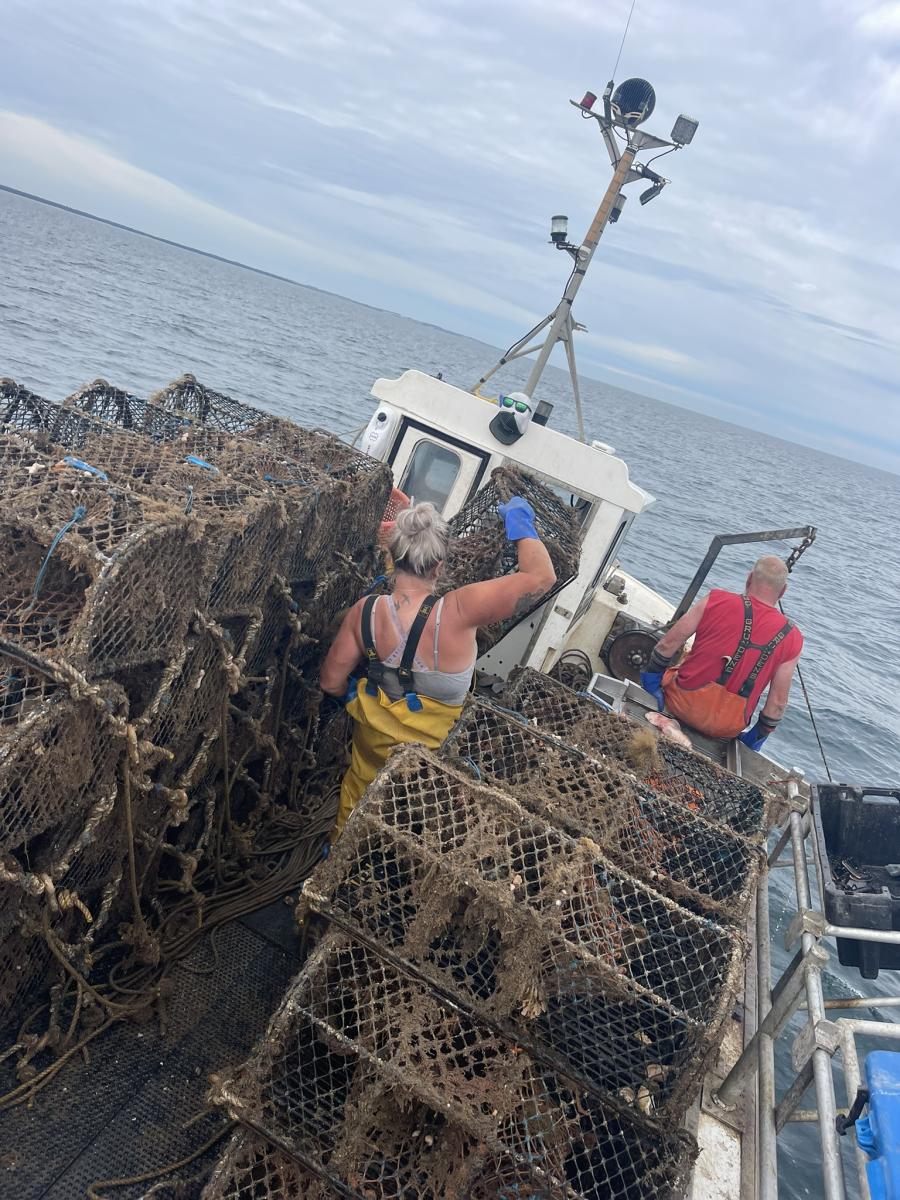
There’s lots of change afoot in the industry – for example, fishing boats that are under 10 metres like ours now have to use an app to estimate the weight of their catch before it leaves the boat – so I wanted to reach out and speak to other fishermen who might be experiencing similar things.
What I didn’t expect was this mass following of non-fishermen who were really interested in my work. And it makes sense: fishing isn’t the kind of job where you can poke your head in the door and watch what’s happening. It’s like a mysterious world – you see boats go in and out of a harbour, but what happens in between?
I try to give as much insight into my work as possible. People seem fascinated by all the different things that come up in the pots – particularly starfish.
I also get a lot of questions about how things work. I love that people are curious to find out more because ultimately this is where your food is caught. It’s sad that 80% of the fish caught in this country goes abroad.
But trying to make fishing financially viable is getting harder, which is disheartening. The cost of living has gone up massively, fuel prices are at an all-time high, but the price of fish hasn’t gone up that much. The price for whelks is lower than what it was in the pandemic. We have Fair Trade standard for food produce and other items, so it would be great to see similar measures in place for small-scale British caught fish, as well as stabilised fish prices.
If people can understand the hard work, time and effort that goes into catching fish, then maybe they’ll change tactic and seek out something that’s in season and been caught in England.
We need to keep looking and challenging where our food is coming from. If I influence one person to make a choice to go and support a small-scale fisherman, then I’m happy.
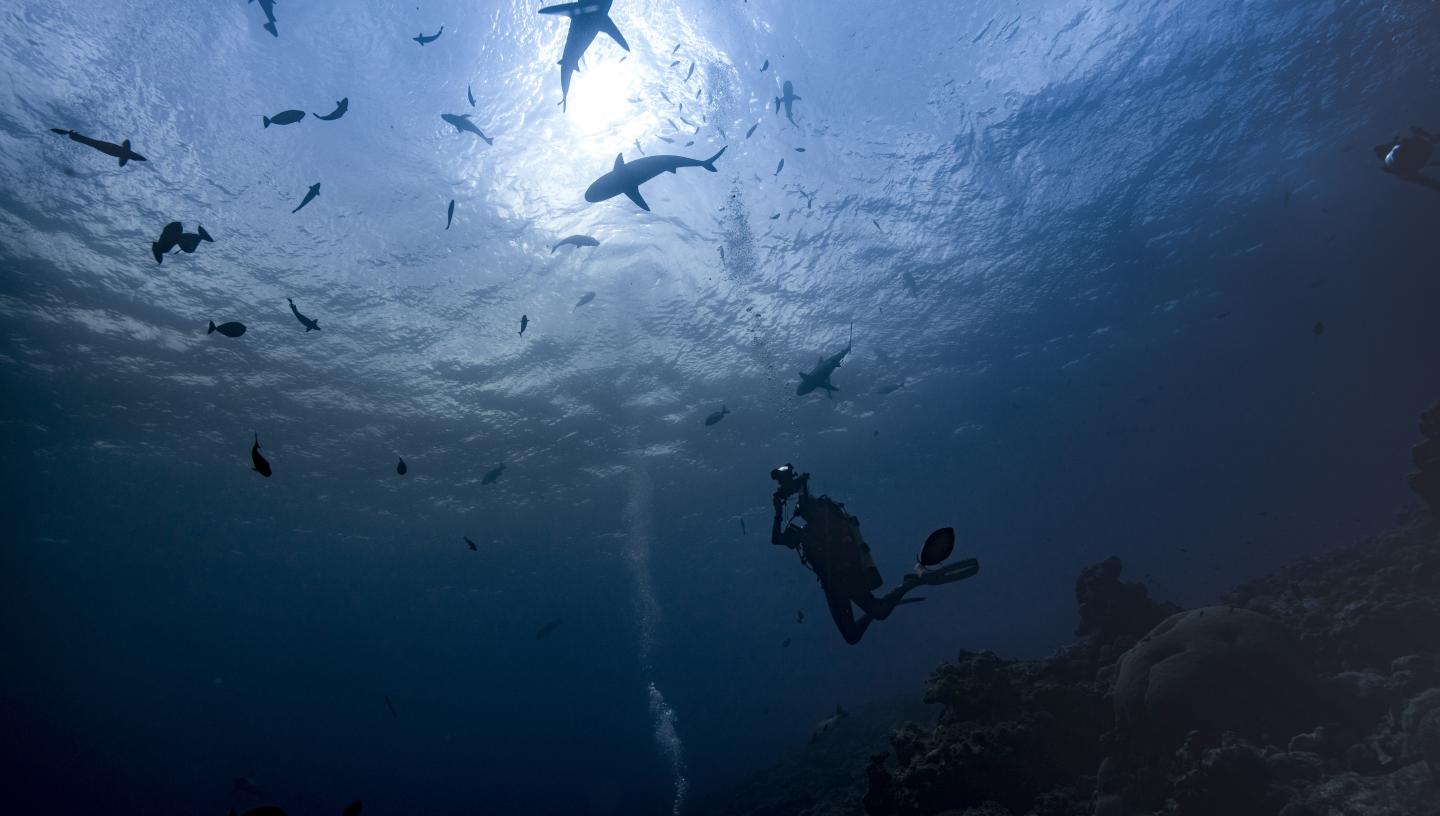
Making Waves
As told to Elizabeth Oliver, Digital Content Producer at Royal Museums Greenwich
Images courtesy of Ashley Mullenger @thefemalefisherman
